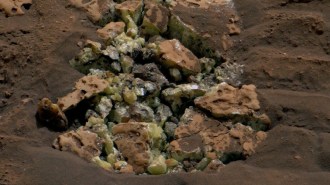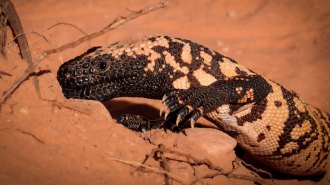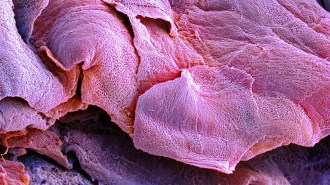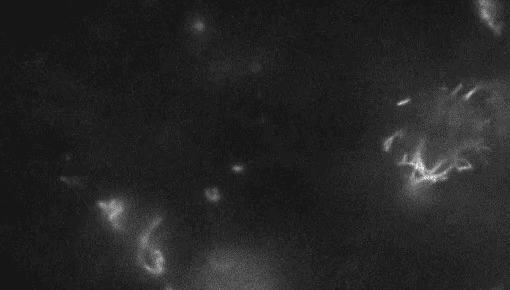All Stories
-
 Plants
PlantsSome tropical trees act as lightning rods to fend off rivals
Though being struck by lightning is usually bad, the tropical tree Dipteryx oleifera benefits. A strike kills other nearby trees and parasitic vines.
-
 Planetary Science
Planetary ScienceCheck out some of the weird rocks that have turned up on Mars
Some of the unusual rocks carry stories about water on Mars. One has hints of long-gone microbes. All tell of a dynamic, complex planet.
-
 Health & Medicine
Health & MedicineHow U.S. public health cuts could raise risks of infectious diseases
Deep funding cuts and widespread layoffs impact everything from local public health outreach to global disease surveillance, making us more vulnerable, experts warn.
-
 Earth
EarthThe ozone layer shields life on Earth. We’ll soon lose a key way to monitor its health
Imminent loss of NASA's Aura and Canada's SCISAT will severely diminish scientists’ ability to monitor ozone-depleting substances in the stratosphere.
By Nikk Ogasa -
 Life
LifeGila monsters may struggle to survive climate change
The Mojave Desert may lose and gain suitable habitat for Gila monsters. But the unathletic reptiles might be mostly stuck in the waning oases.
By Jake Buehler -
 Health & Medicine
Health & MedicineA shingles vaccine may also help reduce dementia risk
Analysis of a Welsh program offering live-attenuated shingles vaccines to people born after a certain date showed a 20 percent relative drop in dementia risk.
By Alex Viveros -
 Space
SpaceFermenting miso in orbit reveals how space can affect a food’s taste
A miso test on the International Space Station shows fermenting food is not only possible in space, it adds nuttier notes to the Japanese condiment.
-
 Health & Medicine
Health & MedicineSkin cells emit slow electric pulses after injury
The electric skin cell signals, which move at glacial pace compared to those in nerve cells, may play a role in initiating healing.
-
 Earth
EarthMore details about the Myanmar earthquake are emerging
A phenomenon called liquefaction, which causes the ground to slump like quicksand, led to significant damage after the Myanmar earthquake. The risk of aftershock remains high.
-
 Plants
PlantsWatch live plant cells build their cell walls
Imaging wall-less plant cells every six minutes for 24 hours revealed how the cells build their protective barriers.
-
 Particle Physics
Particle PhysicsPhysicists have confirmed a new mismatch between matter and antimatter
Charge-parity violation is thought to explain why there’s more matter than antimatter in the universe. Scientists just spotted it in a new place.
-
 Health & Medicine
Health & MedicineA new antifungal drug works in a surprising way
Mandimycin, which targets a different essential fungi cell resource than other antifungal drugs, should harm other cell types as collateral — but doesn’t.